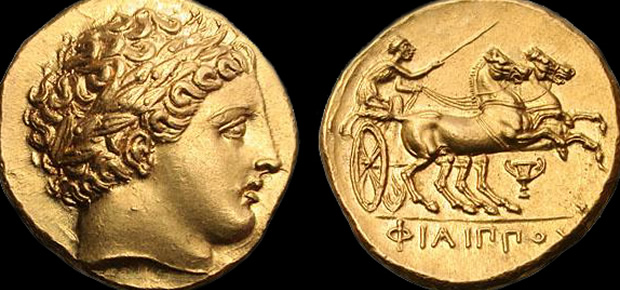
1.4 The decline of the Polis
After the battle of Chaeronea 338, Philip II of Macedonia was in fact become lord of Greece, excluding Sicily and other western cities. He called on all states to Corinth, at a congress in which was founded the League of Hellenes, with the king as the head and supreme commander, and with two objectives explicitly defined. The first was the invasion of Persia under the pretext of avenging the violation of Greek sanctuaries made by the Persians hundred and fifty years before. The second was the use of the combined forces of the League with the aim of ensuring that no city-state there were executions or proscriptions against the laws of the poleis, confiscations of property, nor redistribution of land, or cancellations of debts, nor liberation of slaves for revolutionary ends. The stasis (sedition) was always a threat, e talvolta a soak realtà, but had never before been possible nor conceivable that other Greek states, including Athens, you should arrange to maintain the status quo understood as a matter of general policy. And that was a different thing by the intervention of a state, usually more powerful, in the internal affairs of another state in order to protect their own political interests. Philip intended to provide the pretext that the Greeks would have distracted from the wars, to provide themselves with booty to fill the state coffers empty, and to open up new territories to emigrate.
The success of Philip, repeated by his son Alexander, proved once again that the political difficulties rooted in the fractionation of Hellas could have only one solution sets, or by a more powerful greek, or by a powerful foreign. No one had ever suggested, even if it were hypothetically, the integration of the city-state into larger units. And the only way that seemed possible to overcome the difficulty of finding natural resources and the low level of technology, was to think of an expedition against Persia.
The fourth century was the period in which the Greek polis declined, unevenly, with bursts of shooting and moments of heroic struggle to save, to become finally, after Alexander, a false polis in which the preservation of various external forms of life of the polis could not conceal the fact that since then the Greeks lived in peace sweet decadence, accepting all sorts of bondage, as they were.
The final decline of the polis can be recognized in a single act: delivery of Demosthenes and several of his companions, in 322, to the Macedonians, for the execution.




